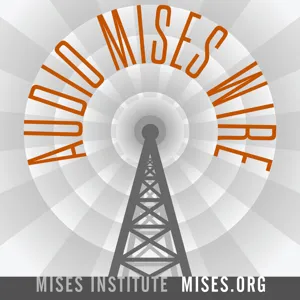Podcast Summary
Green's argument for state necessity: Despite Green's belief in the state's role in shaping individuals, his argument for its necessity weakens when confronted with Locke's natural law doctrine, as Green fails to distinguish effectively between a cooperative society in the state of nature and a political society.
According to Thomas Hill Green, the state plays a crucial role in shaping citizens into free and equal individuals, beyond just providing welfare. However, Green faced a challenge in justifying the need for a state when humans are already considered free and equal in the natural state, as per John Locke's belief in natural law. In his attempt to refute Locke's doctrine, Green's argument weakens, as pointed out in section 53 of his "Lectures on the Principle of Political Obligation." Green argues that a society where individuals recognize the good of the whole and their cooperation is necessary for it, is already similar to political society. But if such a society exists in the state of nature, then the establishment of political society would not be necessary. Thus, Green's argument for the necessity of the state based on promoting virtuous citizenship, falls short when confronted with Locke's natural law doctrine.
Green's perspective on the state and anarchy: Green argues that a society of free and equal individuals can function without a central state, but a peaceful and cooperative society is essential for its success.
According to Green, a society of free and equal individuals can be considered a state in principle, but this doesn't necessarily mean it requires a central apparatus of enforcement. Green challenges the idea that people cannot recognize the equal rights of others without a state. However, he acknowledges that a peaceful and cooperative society is essential for any social system to function, regardless of whether it's anarchist or statist. Anarchism, as per Green's perspective, offers more opportunities for good and fewer channels for bad, depending on individual values. He also suggests that eliminating the state as a living example and source of social legitimacy for legalized crime would promote peaceful values. Green's argument, based on Locke's premise, is that the state doesn't successfully justify its existence. However, he hasn't provided definitive evidence to prove that a society of free and equal persons cannot exist without a state.
Green's critique of Locke's view on state: Green's critique challenges the notion that the establishment of a state is progress, but does not provide a compelling argument for the necessity or benefits of the state
According to Green, a society governed solely by the law of nature, without the need for a government, would not necessitate the establishment of political society, but rather be a decline. Green's argument is that if individuals could follow the law of nature on their own, there would be no need for coercion or a state. However, Green's argument is not a strong one as he assumes the establishment of a state is not a decline, a premise that may not be accepted by those who reject the state. Green's critique of Locke's view on the establishment of a state as progress is a valid point, but it does not provide a compelling argument in favor of the state itself. Ultimately, Green's argument does not offer a strong case for the necessity or benefits of the state. Instead, it raises questions about the role and purpose of government in society.

